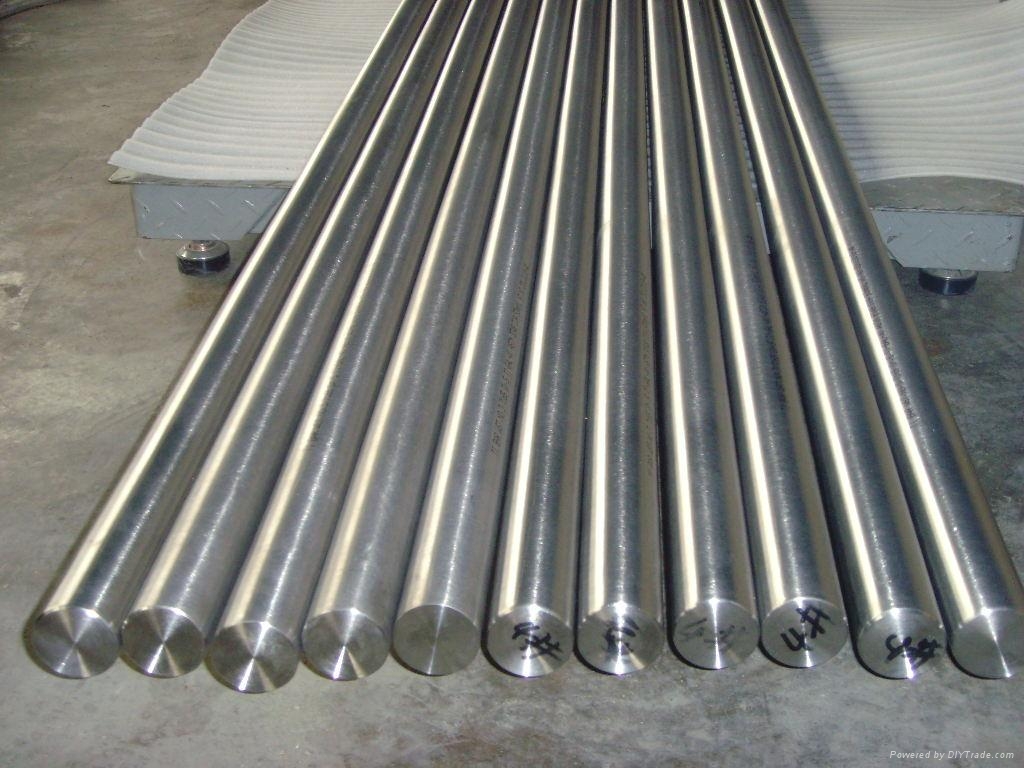

Titanium alloys, including AMS 4911, are highly regarded in industries ranging from aerospace to medical, automotive, and military applications. Known for their exceptional strength, durability, and resistance to corrosion, these alloys are integral to high-performance environments. Below is a comprehensive overview of the key characteristics that make titanium alloys, particularly AMS 4911, a material of choice across multiple sectors.
Summary of Titanium's Key Characteristics:
Outstanding Corrosion Resistance: One of titanium's most valuable properties is its remarkable resistance to corrosion. This is primarily due to the formation of a protective titanium dioxide (TiO₂) layer on the surface, which shields the metal from various forms of environmental damage such as pitting, cracking, and oxidation. Whether exposed to harsh chemicals, saltwater, or extreme temperatures, titanium alloys like AMS 4911 maintain their integrity, making them ideal for applications where durability and longevity are critical, such as in marine and aerospace environments.
Lightweight Yet Strong: Titanium is notably lightweight, weighing approximately 60% less than iron and 40% less than copper. This low density is one of the main reasons it is extensively used in the aerospace industry, where minimizing weight is crucial for efficiency and performance. Despite its lightness, titanium offers exceptional strength, making it a superior alternative to other lightweight metals like aluminum.
Exceptional Strength-to-Weight Ratio: The strength-to-weight ratio of titanium is one of its standout characteristics. This ratio refers to the material’s ability to withstand stress relative to its weight. Titanium is around 40% lighter than steel but matches it in terms of strength, making it an ideal choice for applications that require both strength and minimal weight. Titanium alloys, such as AMS 4911, provide superior tensile strength, making them more durable than aluminum and other metals commonly used in industries like aerospace and automotive manufacturing.
High Heat Resistance and Elevated Melting Point: Titanium’s high melting point of about 1,668°C (3,034°F) makes it an exceptional material for high-temperature environments. This temperature resistance is higher than that of steel and aluminum, allowing titanium to maintain its structural integrity even under extreme heat. The exceptional heat resistance ensures that titanium alloys retain their strength in applications such as aerospace, where components are subjected to intense heat during flight or rocket propulsion. Titanium’s ability to maintain its properties at elevated temperatures also makes it a popular choice in high-performance automotive applications, including sports car engines.
Low Coefficient of Thermal Expansion: Titanium alloys, including AMS 4911, exhibit a low coefficient of thermal expansion (CTE). This means that titanium expands and contracts less when exposed to temperature variations compared to materials like aluminum and steel. As a result, titanium components are less likely to warp or distort due to temperature fluctuations, a crucial factor in applications requiring dimensional stability, such as in aerospace and precision engineering.
Improved Oxidation Resistance: Titanium is highly resistant to oxidation, particularly at high temperatures. This resistance helps to protect the material from degradation in hostile environments, ensuring a longer lifespan and maintaining the alloy’s performance over time. This is particularly beneficial in industries like aerospace, where components are exposed to extreme conditions that would typically cause other metals to degrade or fail.
Conclusion: Titanium alloys, particularly AMS 4911, offer a range of superior properties that make them suitable for use in demanding industries. From aerospace to automotive and military applications, the combination of strength, lightweight, corrosion resistance, and high heat resistance makes titanium a material of choice for high-performance components.
For manufacturers considering titanium alloys, it's important to evaluate their specific requirements and assess whether titanium alloys like AMS 4911 can provide the necessary benefits for their applications. For high-quality titanium products at competitive prices, FlightMetals offers a variety of titanium alloys, including AMS 4904, AMS 4965, AMS 4919, AMS 6930, AMS 4911, Titanium 6242, and AMS 6931, providing robust solutions for various industries.
By choosing titanium alloys, industries can benefit from materials that offer superior performance and durability, ensuring long-lasting, high-quality results across many applications.